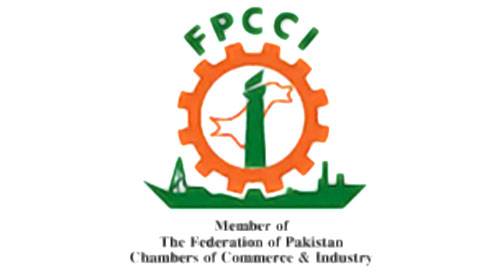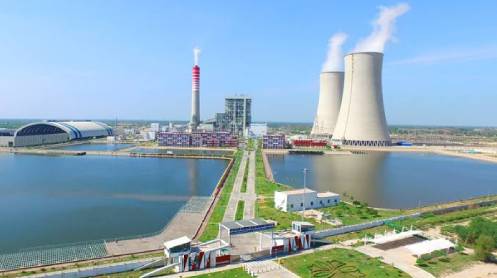ISLAMABAD: Ministry of Energy (Petroleum Division) has finalised draft of Liquefied Petroleum Gas (LPG) Policy 2024, envisaging substantial fiscal incentives to promote domestic LPG production, its import and marketing.
According to the summary of draft policy 2024 to be presented to the Council of Common Interests (CCI) for consideration, all LPG producers will dedicate up to 10% of their production to Suis for LPG Air-Mix Plants(s) developed and operated by Suis and 5% to Marketing Companies (MCs) for supplies in AJK and GB.
Remaining production will be marketed through their distributors/ subsidiary (ies) without resale to any other MC(s) or their distributor(s). Remaining quantities will be disposed through competitive bidding under deregulated pricing regime.
Ogra hikes LPG rates
All producers to develop a transparent pre-qualification criterion for auction of LPG, to be followed by all MCs. Signature bonuses will be eliminated. All producers shall pre-qualify Marketing & Distribution companies once a year.
For marketing distribution, MCs will be obligated to market their LPG quantities on their own and would not be allowed to resell to any other MCs to avoid cartelization, windfall profits, impede competition and market distortion. SNGPL and SSGCL shall enhance market presence by development of retail network.
MCs distributors would be able to sell their LPG at competitive market price under a deregulated regime. Explosive Department shall develop strong inspection regimes of MCs and its Distributors and provide the quarterly monitoring1-feedback to OGRA.
The sources said, OGRA licensed MCs can import LPG, and market to determine the demand for import volumes. OGRA shall ensure quality of imported LPG. OGRA will review LPG specification within three months and develop effective enforcement. Export of surplus local LPG, if any, may be allowed by the Federal Government based on the recommendations of OGRA.
OGRA shall review its existing licensing regime/ terms within six months to include clear investment requirements and other necessary conditions for marketing companies to meet minimum requirement of storage development, maintenance of stocks and cylinders commensurate to their sales volume.
SOEs will be facilitated for partial exemption from PPRA Rules, 2004.
To enhance indigenous production, zero import duty and taxes on plants/ machineries/ equipment/ material for LPG production will be allowed, as well as, ten year tax holidays for new LPG production and zero Petroleum Levy (PL) on locally produced LPG.
Zero import duty and taxes have been proposed on plant/ machinery/ equipment/ materials for development of storage facilities at import terminals, expansion of LPG storage, bottling plants and LPG import terminal.
Petroleum Division has also proposed zero advance income tax on imports. Both imported and domestic LPG shall attract uniform tax treatment (applicable corporate income tax) on net earnings.
The sources said, five per cent GST on imported and locally produced LPG which will be reduced to 1 per cent per annum to zero percent in subsequent five years has been proposed.
OGRA shall develop and maintain web-based database of entire LPG sector, including production, import, import terminals, storage facilities, stocks and consumer price across the country, etc.
Due to substantial capital cost, recurring subsidies, and decision of the ECC of March 26, 2020 to shelve the LPG Air Mix projects’ the Government will not commission any new LPG Air-Mix Plant (LPG AMP) in future except those which are near completion.
Tariff for LPG AMP, which are already in operation or near completion, will be advised by the Federal Government to OGRA for notification from time to time in accordance with a framework of weighted average cost of gas (WACOG).
The private sector will be free to set up LPG AMP on commercial considerations at their own costs and liabilities subject to OGRA’s licensing and without claim to LPG supply quota, otherwise available for LPG AMP developed and operated by Sui Companies. Tariff for LPG AMP, developed and operated by private sector, will be deregulated.
The government may provide subsidies to the qualifying households for buying LPG. Framework for such subsidy program(s) may be developed, as per the directions of the government from time to time, for the areas to be selected/ prioritized by the government based on socio-economic considerations.
OGRA shall develop and announce comprehensive LPG Auto Fuel Regulations for LPG use in 3 wheelers and public service vehicles/ vans.
OGRA may give special permission to qualified fuel/ CNG stations to install LPG kits in autos subject to compliance to pre-defined safety regulations and inspection checks from HDIP or any other party authorized by OGRA.
OGRA shall issue licence for LPG regulated activities, 2 years provisional licence followed by operational licence for 15 years upon meeting conditions. OGRA shall conduct performance audit of existing non-compliant MCs within 6 months for validation, penalization or cancellation of licence. OGRA to update specification, technical and safety standards of LPG supply chain.
OGRA will settle disputes between its licensees and users/ parties relating to commercial/ regulated activities, protect consumers rights, shortage, price hike, anti-hoarding, anti-cartelization.
OGRA will take action against violation of its rule, regulations and licence conditions. Demarcation of Functions between Policy Maker and the Regulator is proposed. The role of Petroleum Division shall be limited to policy making. OGRA shall make and/ or amend its ordinance, rules, and regulations, wherever necessary to implement this policy. An appropriate “Appellate Tribunal” shall be established (in OGRA) to enable the aggrieved party (ies) to challenge the actions and decisions of the regulator.
OGRA may suggest/ recommend to Petroleum Division for improvements/ amendments in the LPG Policy, wherever necessary.
LPG Committee comprising Secretaries (Petroleum, Cabinet, Finance, Planning, and Maritime Affairs Divisions) & Chairpersons (FBR & OGRA) shall deliberate on the suggestions of OGRA and finalise its recommendations for consideration of relevant/ competent fora.





